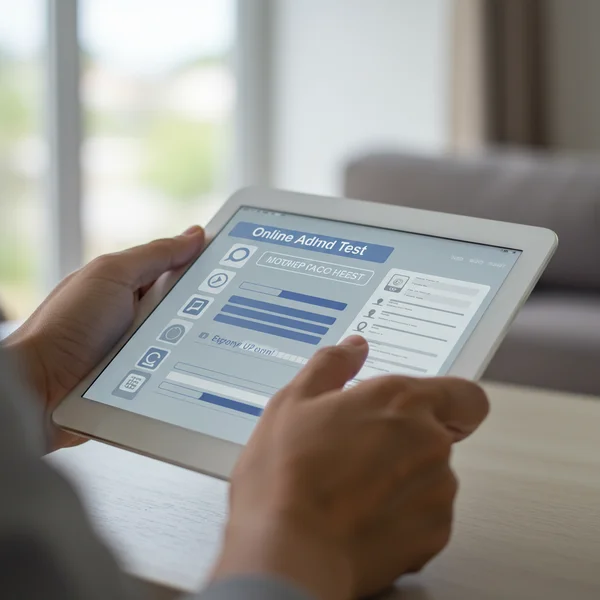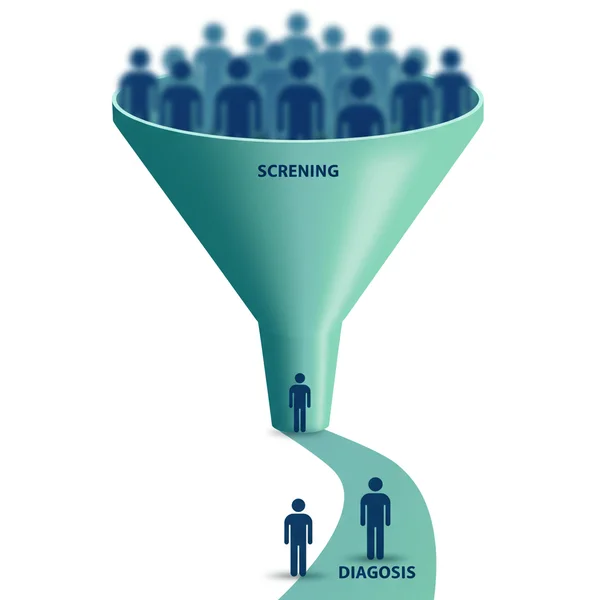Online ADHD Test: What To Do After Your Results
You've just completed an online ADHD test—a brave first step in understanding your focus, impulsivity, or hyperactivity. Now, with your personalized report in hand, you're likely asking: What should I do after taking an online ADHD test? It's common to feel a mix of clarity, confusion, or even relief. This guide will help you interpret your results and confidently navigate the important next steps. Consider this not the finish line, but the start of a clearer path forward.
This journey starts with a simple, accessible step. If you haven't already, you can start your screening on our platform to receive a personalized, AI-driven report that can serve as a valuable starting point for the path ahead.

Understanding Your Online ADHD Test Results
Your results offer the first crucial insights. While an online screening tool provides valuable initial information, it's vital to understand its context. It highlights potential areas, but a complete picture requires more.
Deciphering Your Personalized AI Report
Unlike a simple quiz that just gives you a score, a high-quality ADHD screening offers a personalized AI report. This report does more than count "yes" answers. It analyzes the patterns in your responses to provide deeper insights into specific traits associated with ADHD, such as inattention, hyperactivity, and impulsivity.
Your report might highlight areas where your experiences align closely with common ADHD symptoms. It is designed to be a conversation starter—a tool for self-reflection. It translates your answers into a structured format that can help you better articulate your challenges, whether to yourself, a loved one, or a healthcare professional.
Why an Online Test Isn't a Diagnosis
This is the most critical point to understand: An online ADHD screening test is not a medical diagnosis. A screening tool is designed to identify individuals who may have a higher likelihood of having a condition and should seek further evaluation. Think of it like a vision screening at school; it can tell you if a child has trouble reading the board, but it can't prescribe glasses or diagnose the specific eye condition.
A formal ADHD diagnosis can only be made by a qualified healthcare professional after a comprehensive evaluation. Our tool is a responsible and reliable first step, providing you with the information and confidence to decide if pursuing a formal ADHD diagnosis test is the right choice for you.

Your Essential Next Steps: Seeking Professional Diagnosis
Your screening results provide a solid foundation for the next phase: speaking with a professional. Taking this step can transform uncertainty into a clear plan.
Gathering Your Information and Observations
To make your consultation as productive as possible, preparation is key. A doctor will want to understand the full context of your experiences. Before your appointment, take some time to gather the following:
- Your Screening Report: Bring a copy of your results from the ADHD self assessment test. It provides a concise summary of your potential symptoms.
- Specific Examples: Think of real-life situations where you've struggled. Instead of saying "I'm forgetful," try "I frequently miss appointments, even with reminders, and often misplace my keys or wallet."
- Childhood History: ADHD symptoms must be present before age 12. Try to recall challenges you faced in school or at home during your childhood. For parents, gather school reports and notes from teachers.
- Life Impact: Note how these challenges affect your work, relationships, finances, and overall well-being.
How to Find a Qualified Healthcare Professional
Finding the right professional is crucial. Look for a psychiatrist, psychologist, neurologist, or a primary care physician with specific experience in diagnosing and treating ADHD in your age group (adults, adolescents, or children). You can start by asking your current doctor for a referral or checking with your insurance provider for a list of in-network specialists.
When you make the call, don't hesitate to ask, "Do you have experience with adult ADHD diagnosis?" or "Do you conduct comprehensive ADHD evaluations?" This ensures you connect with someone who can provide the expert care you need.
What a Comprehensive ADHD Diagnosis Involves
A professional ADHD evaluation is a thorough and multi-faceted process. It goes far beyond a simple questionnaire to ensure an accurate diagnosis and rule out other conditions that can mimic ADHD symptoms, such as anxiety, depression, or thyroid issues.
The Role of Clinical Interviews and Medical History
A detailed clinical interview is the foundation of any ADHD diagnosis. Your doctor will ask in-depth questions about your symptoms, their duration, and their impact on your life. They will also take a complete medical history to screen for other potential causes of your symptoms.
This conversation is your opportunity to share the information you've gathered. The doctor's goal is to build a complete picture of your daily functioning, past challenges, and current struggles. This in-depth conversation is something no online ADHD test can replicate.

Psychological Testing and Rating Scales
In addition to the interview, your doctor may use standardized psychological testing and rating scales. These are validated questionnaires, similar in format to an online screening but far more detailed. They may ask you, and sometimes a partner or family member, to rate your behaviors.
These scales provide objective data that, when combined with the clinical interview and your personal history, helps the clinician make an accurate diagnosis. This detailed approach ensures a treatment plan that is truly personalized.
Living with Potential ADHD: Support & Strategies
Whether or not you pursue a formal diagnosis right away, your screening results can empower you to start making positive changes. Understanding your brain's unique wiring is the first step toward developing effective strategies for navigating life's challenges.
Discussing Treatment Options with Your Doctor
If you receive a formal diagnosis, your doctor will discuss treatment options with you. This is a collaborative decision. Treatment for ADHD is often multi-modal and can include:
- Medication: Stimulant or non-stimulant medications can be highly effective at managing core symptoms.
- Therapy: Cognitive Behavioral Therapy (CBT) can help you develop practical coping skills for organization, time management, and emotional regulation.
- Coaching: An ADHD coach can provide support and accountability to help you achieve your personal and professional goals.
Embracing Support & Coping Mechanisms
There is a vibrant and supportive community of people with ADHD. Connecting with others who share your experiences can be incredibly validating. You can also begin exploring ADHD-friendly coping mechanisms, such as using visual timers, breaking large tasks into smaller steps, or using noise-canceling headphones to minimize distractions. Remember, understanding your challenges is the key to discovering your strengths. Take the first step and try our free tool today.
Your Journey to Understanding ADHD Begins Now
Completing an online ADHD test is a proactive and courageous step. Think of your results not as a label, but as a valuable guide. They're a starting point for deeper understanding and a pathway to empowering change. Use this information to have more informed conversations, seek the right professional help, and begin implementing strategies that work for your unique brain. You've asked the first question; now, let's explore what comes next.
Frequently Asked Questions After Your ADHD Test
Is this online ADHD test accurate?
An online test like ours is an accurate screening tool. It is built using questions based on established scientific criteria to identify potential ADHD traits. However, it is not a diagnostic tool and cannot replace a comprehensive evaluation by a qualified healthcare professional.
How to get tested for ADHD?
The process typically begins with self-assessment, like taking a free online ADHD test. The next steps involve gathering personal history and examples of your challenges, and then scheduling an appointment with a healthcare professional (like a psychiatrist or psychologist) for a full clinical interview and formal evaluation.
What should I do after taking an online ADHD test?
After taking the test, use your personalized report as a tool for self-reflection. Share the results with a trusted loved one or use them as a starting point for a conversation with a doctor. The most important step is to view the results as a guide for seeking professional advice, not as a final diagnosis.
How much does ADHD testing cost?
The cost of a formal ADHD diagnosis varies significantly based on your location, the provider's specialty, and your insurance coverage. While a professional evaluation can be costly, an initial screening on our platform is completely free. You can take a free ADHD test to get preliminary insights at no cost.